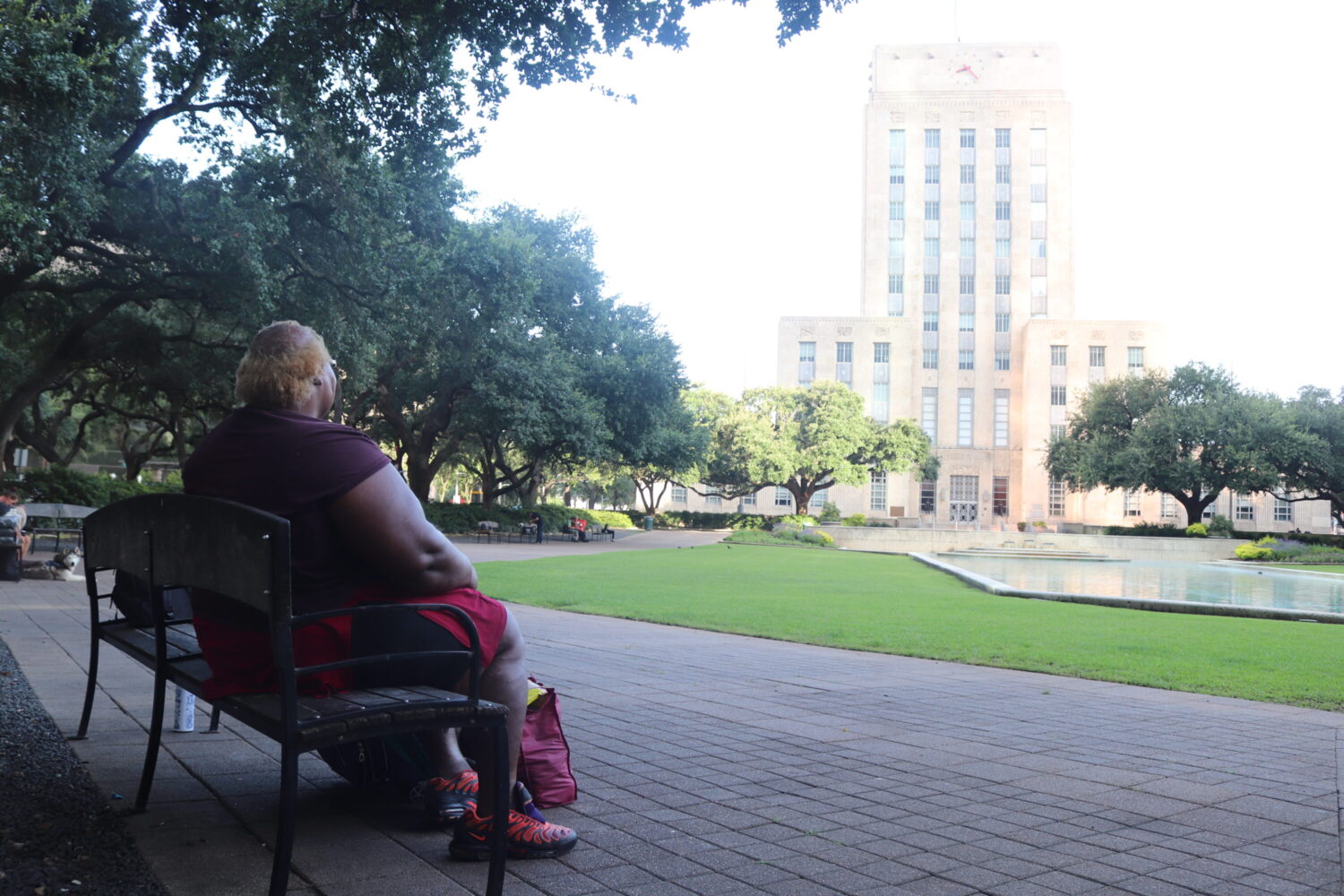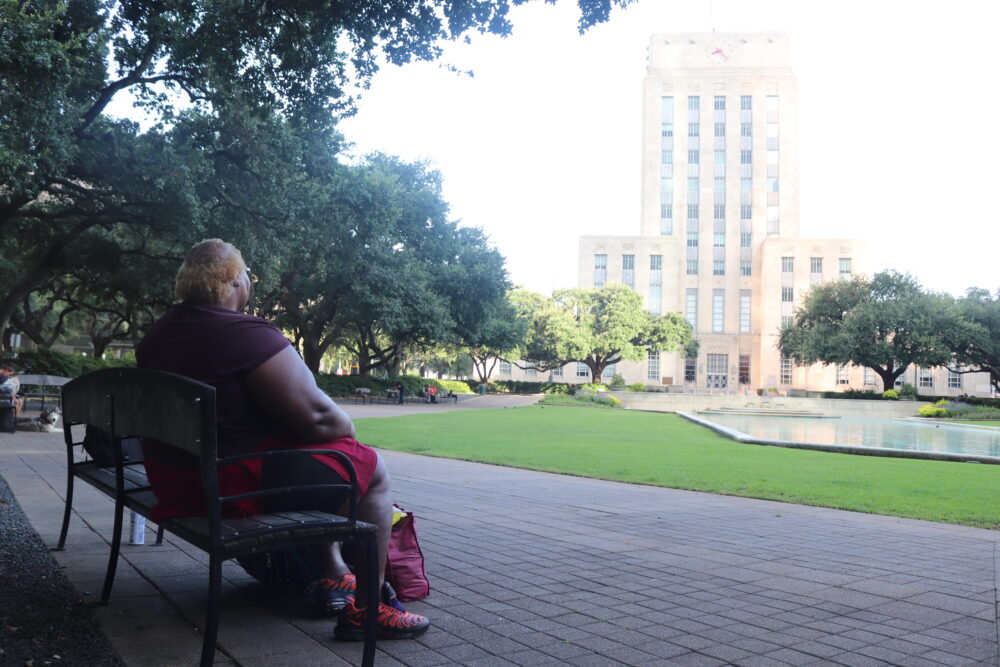Dominic Anthony Walsh/Houston Public Media
Lasonya Harris sits on a park bench and looks at Houston City Hall on Wednesday, July 16, 2025.
The city of Houston plans to open a “superhub” for homeless people as part of Mayor John Whitmire’s initiative to address street homelessness in the city.
Details are sparse — including the number of beds, exact location, total cost and timeline. Housing department director Mike Nichols told Houston Public Media the city saw “an opportunity to buy a facility for, we think, a very good price,” and the department intends to present the proposal to the city council sometime in October.
It’s intended to function as a “triage” site where homeless people are referred to services, like healthcare, psychiatric support, substance abuse programs or pathways to permanent housing.
“We want to have a better front door, a better welcoming for people who are having to live on the street right now,” Nichols said. “It works as long as we focus on housing. … This is not a therapeutic center. It is a place for people to be, to get to the right location, and eventually 80% or more will end up in housing quickly.”
If it moves forward as planned, the superhub will be the first of four to five similar facilities across the city. According to Nichols, it would be the only such facility with temporary beds for homeless people. It is expected to be located somewhere in central Harris County, though the exact location remains undisclosed.
RELATED: More than 3,300 people are homeless in the Houston area in 2025, according to newly released figures
According to the Coalition for the Homeless of Houston/Harris County, the nonprofit counts about 1,500 shelter beds among its partners across the Houston area. There are also hundreds of beds across the area outside the official system coordinated by the coalition.
“That is an insufficient number of beds,” Coalition CEO and president Kelly Young said.
During the annual point-in-time count conducted by the coalition and its partners in January, at least 1,282 people slept on the streets while 2,043 stayed in shelters across Harris County, Fort Bend County and Montgomery County.
Lasonya Harris, who’s slept outside for about two years after losing a sales job, told Houston Public Media she’s struggled to find a shelter bed as she’s moved between the downtown area and Northwest Houston. Harris said she’s regularly told shelters are full. When she hears about available spaces, she has trouble finding transportation.
“I’m trying to find some resources, trying to make it and just get out of the struggle, trying to be above the struggle each day,” Harris said. “I stay anywhere I can.”
RELATED: Houston City Council effectively bans homeless people from downtown and East Downtown sidewalks
With the one-year anniversary of Whitmire’s announcement that he intended to “end homelessness” in Houston approaching at the end of November, the city remains short of its $70 million annual fundraising goal.
The city has raised about $33 million from a variety of sources, over half of which are federal. Nichols told Houston Public Media that private philanthropic sources have “put in a beginning sum” of about $6 million as the department seeks more than $20 million in private funding per year for the initiative.
Harris County commissioners on Thursday approved the reallocation of $18.8 million in federal funding toward “housing, homelessness prevention and food assistance services.” A spokesperson for the county’s housing department said $8 million of that will flow to the coalition and will “support individuals and families experiencing homelessness across Harris County, including areas within the City of Houston as needed.”
Separate from its annual goal, the city intends to allocate $40 million in federal funding for recovery from Hurricane Beryl and the derecho wind event toward homelessness. Nichols said that funding will support the opening of additional homelessness hubs.
Even as Nichols has repeatedly said the program needs to be “sustainable with or without federal funds,” nearly half of the funding raised so far consists of federal dollars.
“For the next three years, we’re going to rely on federal funding — absolutely,” Nichols said. “After three years, we need to be able to be sustainable, and that is the challenge.”

